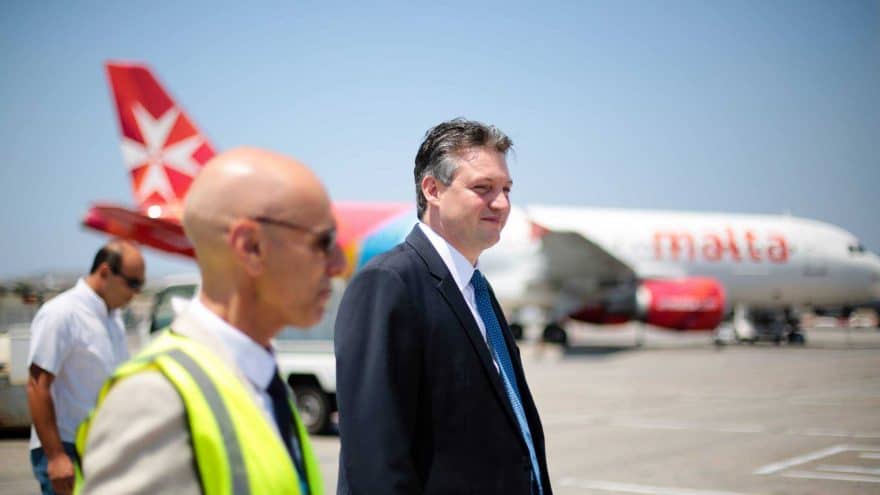
The Maltese government will have a tough time convincing the European Commission to allow it to subsidise Air Malta for the next five years. As with any other airline, covid had a devastating effect on the national airline.
But Air Malta recorded disastrous results before the covid pandemic hit. In fact, sources from within the management of the airline tell this website Air Malta is expected to report record losses of more than €39.7 million for the financial year that closed in March last year. At the end of that disastrous financial year, travelling restrictions had only been in place for 20 days. Air Malta was raking in record revenues during the remaining 345 days of the financial year ending in March 2020. And it was clocking record losses.
The losses for 2019 and 2020 more than wiped out the profits registered by Air Malta in the previous two years (2017-2018 and 2018-2019) when Air Malta recorded a total profit of €29 million for two years. Those profits were completely artificial because they relied on two one-off sales that Air Malta cashed in on during those two years while the government stripped it of its most valued assets.
Air Malta’s landing rights in UK airports were taken away from Air Malta against compensation of €57 million. The money was injected to compensate for operating losses made by the airline but the contribution had already been burnt up in new losses accumulated before covid hit.
Two days ago this website also revealed that Air Malta had also been forced to sell its own name and brand. It was paid €21 million. That sum has also been entirely consumed in pre-covid losses.
Parking revenues from the irrevocable and unrepeatable sale of London landing rights and Air Malta’s brand, the airline made losses every year during Konrad Mizzi’s term as its Minister. He was put there after the June 2017 election. At the time Joseph Muscat justifying re-appointing Konrad Mizzi in spite of the Panama Scandal because he needed “the miracle worker” to rescue the national airline.
But no miracle was forthcoming. Konrad Mizzi failed to put a dent in the spiralling losses of the national airline. In the year 2016-2017 Air Malta actually more than trebled its losses over the previous year recording a €13 million loss. That now seems like a good result compared with a €39.7 million loss for 2019-2020.
Air Malta is expected to publish its audited accounts for 2020 but it will be interesting to see if its auditors will agree to sign its financial statements recording this scale of losses without recommending that the airline is declared bankrupt. Even before the covid crisis, Air Malta’s stripped-down assets could no longer be expected to make good for its yearly losses.
The financial situation must be of more than a little concern for Air Malta’s board of directors who risk personal liability if they stay on the board while the airline hits a financial brick wall. Ernest Azzopardi, James Camenzuli, Kristina Camilleri Deguara, David Curmi, Mark Farrugia, Francois Piccione, Ray Sladden, Jason Vella and Philip von Brockdorff are likely assessing the personal risk to themselves in this situation.
Times of Malta this morning reported that the government is trying to convince the European Commission to allow it to subsidise Air Malta for the next 5 years. The Commission would have to believe that the government can reverse the yearly losses suffered by the airline.
However, it looks like the government also has a Plan B in the likely scenario that they fail to save Air Malta. The London landing rights and the airline’s brand would no longer be used to pay taxes, employees and creditors in case of a forced liquidation but they will go instead into one or both of the two new airline companies the government has set up, in one case in partnership with Ryanair.